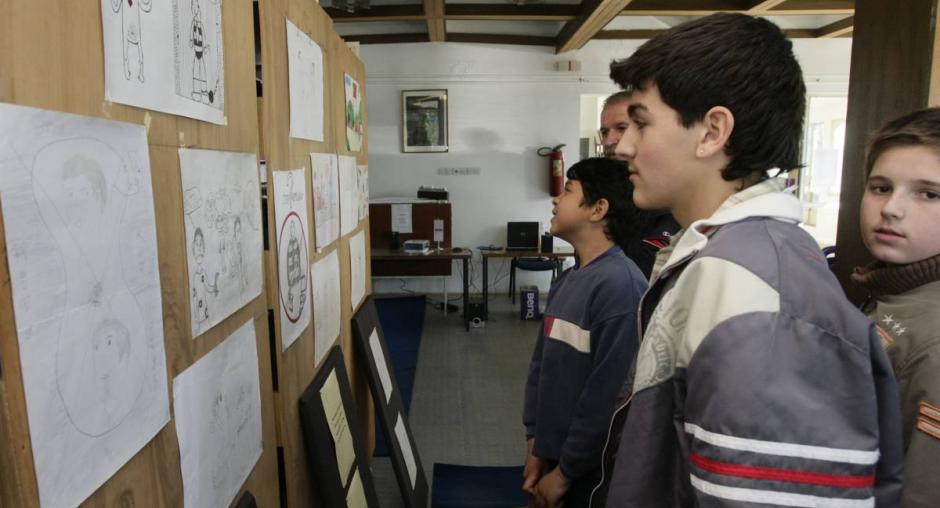Tackling corruption by changing attitudes in southern Serbia
Once corruption is established, it can be very hard to get rid of. This is particularly true in poor regions, where taking bribes may be the only way that some people have of making a living.
Lebane in southern Serbia is such a region. Statistically, it is one of the country's poorest municipalities, which influences the level of corruption and affects young people's confidence in the future.
In a recent survey by the Centre for Democratic Activities (CDA) in Lebane, more than 65 per cent of the municipality's population admitted to having offered or accepted bribes.
To help tackle the problem, the OSCE Mission to Serbia supported an initiative last year by the CDA to create an anti-corruption centre. The latter has carried out various activities to raise citizens' awareness of corruption, and to increase transparency in the work of the local government in order to help combat its institutionalization.
Educating young people
"Young people are easier to educate about the importance of being honest citizens," says the CDA's Director, Biljana Nikolic. "More importantly, they are braver, as they have yet to be exposed to the fear of talking about such a sensitive topic as corruption."
One of the anti-corruption centre's latest activities aimed at young people was an initiative entitled Is it me? which included a competition for the best cartoons and slogans on the theme of tackling corruption. The youngsters were encouraged by their schools to take part and the winners were chosen based on votes from the public.
The winners received their prizes at a ceremony on 26 March this year attended by representatives of the Mission, local government institutions and the police. It was held at the public library in Lebane, where the best of the young people's creative work was also exhibited. The pictures and slogans were also given to institutions as a reminder of their role in the fight against corruption.
One of the winners, Zarko Velickovic, explains that one of the reasons the initiative appealed to him and other students is that they themselves can face corruption when looking for jobs, where bribes may be involved. "Visuals can provoke reactions and if nothing else, this is a good beginning of a long process," he says.
Eliminating mistrust
"One of the overall aims of the project has been to break down the barrier of mistrust between citizens of the municipality and the institutions," says the Head of the Mission's Rule of Law Department, Ruth Van Rhijn, who presented the prizes. "The attendance at the award ceremony demonstrated that the project has helped to start breaking down this barrier."
The anti-corruption project has already made a difference, with more people coming forward with claims of corruption and improved awareness of the problem in general.
"Once people realize what corruption is, they can more easily make a choice," says Van Rhijn. "We hope that the idea of the competition and exhibition will be viewed positively as an initiative for other municipalities in Serbia to follow."

